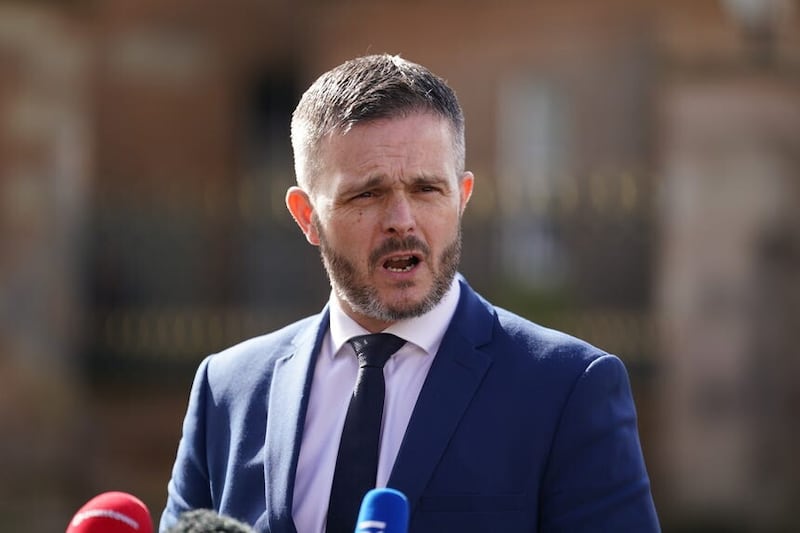The most successful Ulster Unionist leader of the modern era was Jim Molyneaux, a very private, ultra-conservative Orangeman who rarely courted media attention. He assumed the leadership of what was then the north’s largest political party in 1979 following a decade of turmoil, in which the party went through four leaders and suffered numerous splits.
The unorthodox, media-amenable Doug Beattie has very little in common with his predecessor, apart from overseeing a party rife with internal division. Whereas the one-time Lagan Valley MP led a party whose MPs at least outnumbered their rivals by two-to-one, the Upper Bann MLA has had to manage what looks very much like terminal decline.
More: Doug Beattie’s statement in full as he resigns as UUP leader
A minor increase in vote share in last month’s Westminster election, helped in the main by Robin Swann’s performance in South Antrim and the lack of a DUP challenger in Fermanagh-South Tyrone, masked an otherwise poor showing at the polls, which elsewhere was in keeping with the downward trajectory evident in recent council and assembly elections.
Progressive by the standards of political unionism, Mr Beattie has a high social media profile and has embraced policies that some within his own ranks would dismiss as ‘woke’. Months into his leadership Newry, Mourne & Down UUP councillor Harold McKee, a former MLA who later joined the TUV, resigned from the party over what he characterised as the new leader’s “liberal values”.

But Mr Beattie has been unapologetic in his often brash, occasionally amateurish, approach. His ‘union of people’ slogan encapsulating a view that sees traditional identity unionism is delivering diminishing returns. The former British army captain believes unionism needs to be more inclusive and focus on areas like defence and economics to safeguard the north’s place within the UK.
Few have criticised him publicly on policy but in a party that has always been a broad church, there were inevitable rumblings of disquiet.
The issue that has reportedly prompted the latest internal unrest, and ultimately the leader’s resignation, was the selection of Ballymena councillor Colin Crawford to replace Robin Swann as MLA for North Antrim.
Mr Beattie was said to be unhappy with this outcome and at the time signalled his intention to quit, before withdrawing his resignation.
However, it’s understood that disagreements with the UUP’s ruling executive continued to fester and came to a head over recent days.
In his resignation statement, Mr Beattie cited “irreconcilable differences” between himself and party officers.
Notably, in the same sentence he also referenced an “inability to influence and shape the party going forward”, suggesting there are those at the top of the UUP who are resistant to change.
This is not a challenge exclusive to Doug Beattie and it’s one that will bedevil his successor, who given the slim pickings available, looks likely to be current deputy leader Robbie Butler.
There is an ageing yet powerful contingent with the UUP whose animosity for the DUP is based less on policy than historical rivalry. Trying to appease this wing while also seeking woo back those who’ve gravitated to Alliance is a difficult circle to square.
Another challenge facing the new leader, the seventh in 14 years, is an anticipated movement towards the centre ground by the DUP under Gavin Robinson’s leadership.








